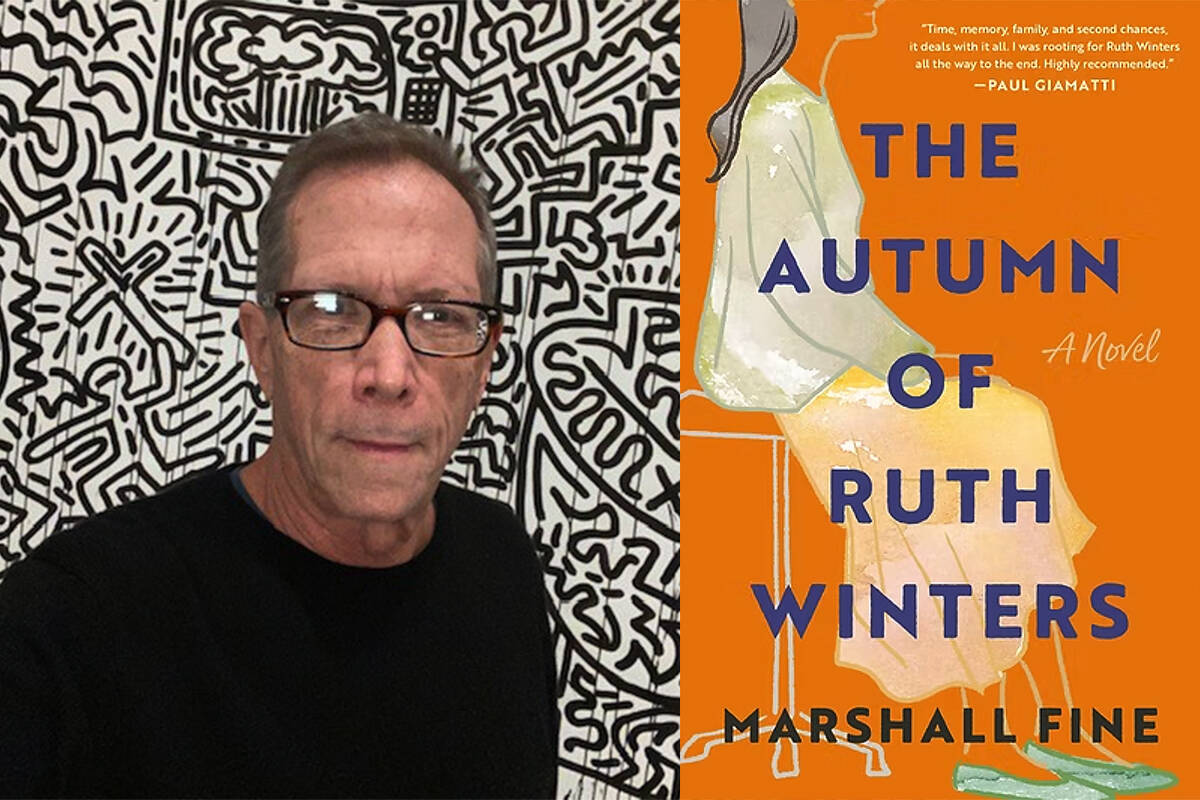
Journalist, author and filmmaker Marshall Fine’s previous works include Hollywood biographies, reviews, documentaries and high-profile interviews.
But for his debut novel, Fine chose to tell the intimate, funny story of Ruth Winters, a 60-ish widow and retiree who long ago chose to accept the dull rhythms of her life.
Then comes a series of unexpected events that forces Ruth to rethink and reimagine her life: an announcement from her favorite niece, an out-of-the-blue email from a high school classmate who could have been the one and, most jarring of all, some serious news from her long-estranged sister.
“The Autumn of Ruth Winters” (Lake Union, $17) follows the title protagonist on a surprising later-in-life journey she never planned to take. This interview with Fine, a Minnesota native who now lives in New York state, has been edited for length and clarity.
Las Vegas Review-Journal: This is your first novel. Is this one of those ideas that have been germinating in your mind for years?
Marshall Fine: Not at all. My favorite writers are people like Elmore Leonard. I read a lot of crime, and I love Dashiell Hammett and Raymond Chandler. My favorite filmmakers are Scorsese, Quentin Tarantino and John Ford. So, I expected that I’d write something sort of like that.
What was the genesis?
I went to my 50th high school reunion and a couple of years later had lunch with a woman who I had known in high school who had not been to the reunion. Having lunch with her and hearing what her life had been, as opposed to what I’d imagined it would be, started me thinking about this character. The character isn’t her but was inspired by her.
The story is triggered by some big news Ruth receives from her sister within the first few chapters.
When I wrote that scene I knew there was disagreement between the sisters but really didn’t know what was going to happen. I’ve always interviewed writers who would say, “A character walked in who I hadn’t expected” or “A character said something I didn’t know they were going to say.” I never understood how that could happen … and I had no idea that would happen, and it changed the book completely.
How did that scene change the story?
Basically, I eliminated sarcasm and eliminated cynicism and just tried to focus on sincere emotion from her point of view and just take it from there.
Did you have any trepidation about writing from a female character’s point of view?
Once I started to do this, I thought I wanted to write a book about women that doesn’t sound like it was written by a man. … I said to my wife, “I think I’m writing a novel about a woman in her 60s.” She said, “That’s because you’re such an expert on the female experience.”
She was being sarcastic?
Yes, she was. (Laughs) The only person more surprised than I am by this book is my wife.
Ruth is a character who will be genuinely relatable to anybody navigating the autumn of their own lives. What are you hearing from readers about that aspect of the story?
I’m really gratified by readers’ response to that theme and the way readers have responded to the idea that it’s never too late to be who you might have been and that as long as you’re drawing breath there is a chance to have some fun. … It’s never too late to change your point of view.
Some things are left up in the air at the book’s end. Any chance of a sequel?
It’s funny: When I was talking about this with my publisher before they even bought it, an editor said, “Have you thought about a sequel?” I said: “Not until this minute.” … But I certainly have a title if I come up with an idea.
